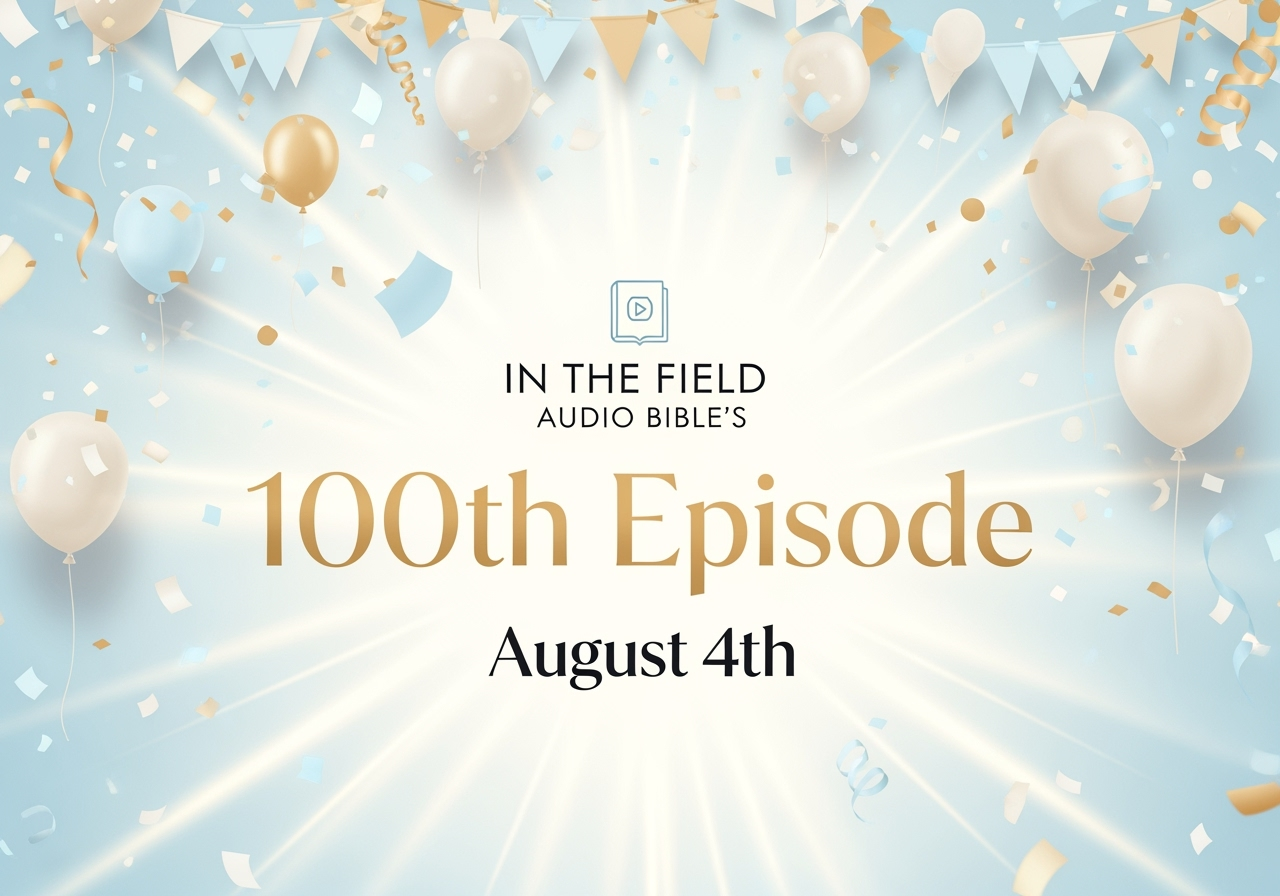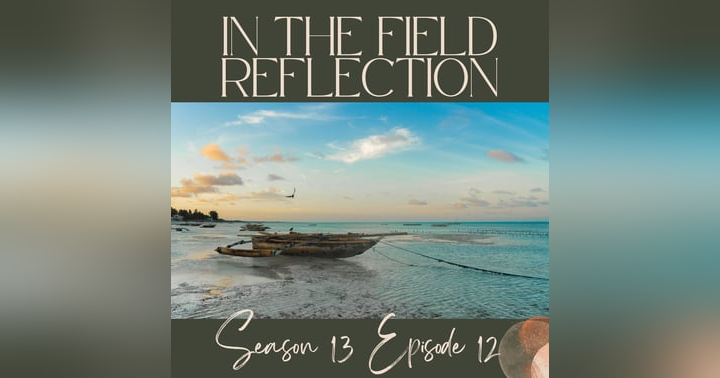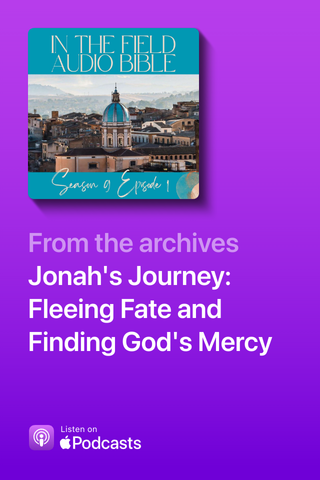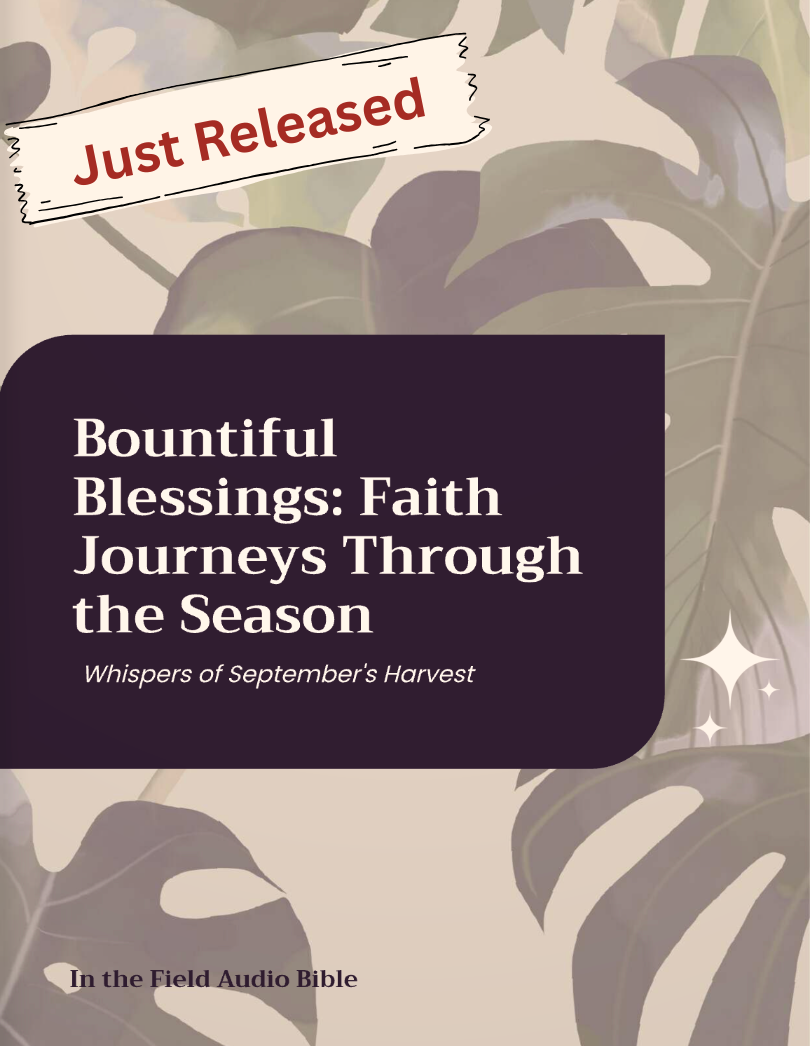Mount Sinai vs. Mount Zion: Embracing Grace Over Fear
Welcome to another deep dive into the Scriptures! In this blog post, we'll be expanding on the themes explored in our latest podcast episode, Rewriting Our Regrets: The Journey Through Wishes and Reality. In that episode, we grappled with the weight of regret and the yearning for a second chance, and we found solace and direction in the book of Hebrews, particularly chapter 12. Here, we'll unpack the powerful contrast between Mount Sinai and Mount Zion, understanding how Jesus, as the mediator of a new covenant, invites us into a relationship with God based on grace, not fear.
The Weight of Regret and the Hope of Grace
Regret is a universal human experience. We all have moments we wish we could take back, decisions we wish we could undo. These regrets can weigh us down, casting a shadow over our present and future. They can breed feelings of shame, guilt, and hopelessness. But Scripture offers a powerful counter-narrative to the crushing weight of regret: the promise of grace. Grace is unmerited favor, a gift freely given despite our shortcomings. It's the foundation of our relationship with God through Jesus Christ. Hebrews 12 provides a roadmap for navigating the journey of life, acknowledging our past mistakes while fixing our eyes on the hope of a future defined by grace and forgiveness.
The Journey with the Scribe: A Vivid Exploration of Hebrews 12
Imagine yourself walking alongside a scribe in an ancient village. The sun is just beginning to rise, casting long shadows across the dusty streets. The air is filled with the sounds of daily life stirring: the bleating of sheep, the chatter of merchants preparing for the day, the rhythmic sound of grinding grain. This is the setting for our exploration of Hebrews 12. The scribe, a thoughtful and learned man, is your guide. He leads you through the verses, illuminating the meaning with stories, anecdotes, and insightful observations. He helps you to see the text not as a collection of abstract ideas, but as a living, breathing word that speaks directly to your heart. Together, you examine the challenging and encouraging words of Hebrews 12, allowing its timeless wisdom to shape your perspective and inform your journey.
Running the Race of Life: Laying Aside the Weights That Slow Us Down
Hebrews 12:1 encourages us to "lay aside every weight, and the sin which so easily ensnares us, and let us run with endurance the race that is set before us." This is a powerful metaphor for the Christian life. Life is a race, a marathon, not a sprint. It requires endurance, perseverance, and a clear focus. But what are these "weights" that slow us down? They can be anything that hinders our progress, anything that distracts us from our goal of following Christ. These weights can include: unresolved conflicts, unhealthy relationships, negative thought patterns, material possessions, and, of course, our regrets. Regret, in particular, can be a heavy burden, pulling us backward and preventing us from moving forward. To run the race effectively, we must identify these weights and consciously choose to lay them aside. This requires self-awareness, honesty, and a willingness to let go of things that are holding us back. It also requires the help of the Holy Spirit, who empowers us to overcome our weaknesses and break free from our limitations.
God's Discipline: Shaping Us Through Painful Experiences
Hebrews 12:5-11 addresses the often-difficult topic of God's discipline. It reminds us that God disciplines those He loves, just as a father disciplines his children. This discipline may take various forms, including: hardship, suffering, trials, and even painful consequences for our mistakes. It's important to understand that God's discipline is not punishment. It's not an expression of anger or rejection. Rather, it's an act of love, designed to shape us, refine us, and draw us closer to Him. God uses our painful experiences to teach us valuable lessons, to strengthen our character, and to produce "the peaceful fruit of righteousness" in our lives. This doesn't mean that suffering is inherently good or that we should seek out pain. But it does mean that we can trust God to use even the most difficult circumstances for our ultimate good. We can find comfort in knowing that God is working behind the scenes, transforming our trials into opportunities for growth and spiritual maturity.
Mount Sinai vs. Mount Zion: A Contrast of Fear and Grace
The heart of Hebrews 12 lies in its powerful contrast between Mount Sinai and Mount Zion. Mount Sinai represents the Old Covenant, the law, and the terrifying approach to God. In Exodus 19, we read about the Israelites' encounter with God at Mount Sinai. The mountain was shrouded in smoke and fire, accompanied by thunder, lightning, and the sound of a trumpet. God's voice was so powerful that the people begged Moses to speak to them instead. This scene highlights the distance and separation between God and humanity under the Old Covenant. The law demanded perfect obedience, and any transgression resulted in judgment and condemnation. The people were filled with fear and trembling, aware of their own sinfulness and unworthiness to stand in God's presence.
In contrast, Mount Zion represents the New Covenant, grace, and the welcoming invitation to God's presence. Hebrews 12:22-24 describes Mount Zion as "the city of the living God, the heavenly Jerusalem, and to innumerable angels in festal gathering, and to the assembly of the firstborn who are enrolled in heaven, and to God, the judge of all, and to the spirits of the righteous made perfect, and to Jesus, the mediator of a new covenant, and to the sprinkled blood that speaks a better word than the blood of Abel." Mount Zion is a place of joy, celebration, and intimate communion with God. It's a place where we can approach God with confidence and boldness, not because of our own merit, but because of the blood of Jesus that has cleansed us from all sin. The New Covenant, mediated by Jesus, is based on grace, not law. It's a covenant of forgiveness, redemption, and reconciliation. Through Jesus, we have access to God's presence, not as fearful servants, but as beloved children.
Jesus: The Mediator of a New Covenant
Jesus is the key to understanding the contrast between Mount Sinai and Mount Zion. He is the mediator of a new and better covenant, a covenant based on grace and truth. As Hebrews 12:24 reminds us, Jesus' blood "speaks a better word than the blood of Abel." Abel's blood cried out for vengeance, while Jesus' blood cries out for mercy and forgiveness. Through his sacrifice on the cross, Jesus satisfied the demands of the law, atoning for our sins and reconciling us to God. He removed the barrier of sin that separated us from God, opening up a pathway to intimate communion with Him. Because of Jesus, we no longer need to approach God with fear and trembling. We can approach Him with confidence and boldness, knowing that we are accepted and loved in Him. Jesus is the bridge between God and humanity, the one who makes it possible for us to experience the fullness of God's grace and love.
Personal Reflection: What Weights Do You Carry?
Take a moment to reflect on your own life. What weights are you carrying? What regrets are holding you back? What sins are ensnaring you? Are you struggling with unresolved conflicts, unhealthy relationships, or negative thought patterns? Are you clinging to material possessions or pursuing worldly ambitions at the expense of your spiritual growth? Be honest with yourself and identify the things that are hindering your progress in the race of life. Once you have identified these weights, ask God to help you lay them aside. Confess your sins, forgive those who have wronged you, and release the burdens that are weighing you down. Remember that you don't have to carry these weights alone. Jesus is willing to carry them for you. He invites you to cast all your anxieties on Him, because He cares for you (1 Peter 5:7).
Embracing the Journey: Moving Forward with Christ's Strength
The Christian life is not a destination; it's a journey. There will be ups and downs, joys and sorrows, victories and defeats. But through it all, we can trust in God's faithfulness and rely on His strength. When we stumble, He will pick us up. When we are weak, He will make us strong. When we are discouraged, He will encourage us. Don't be afraid to keep moving forward, even when the road is unclear or the night feels long. Remember that you are not alone. Jesus is walking beside you, guiding you, and empowering you to overcome every obstacle. Embrace the journey with faith, hope, and love, knowing that God is working all things together for your good.
Receiving an Unshakable Kingdom: Fixing Our Eyes on What Truly Matters
Hebrews 12:28-29 concludes with a powerful reminder: "Therefore let us be grateful for receiving a kingdom that cannot be shaken, and thus let us offer to God acceptable worship, with reverence and awe, for our God is a consuming fire." We are receiving a kingdom that cannot be shaken, a kingdom that transcends earthly limitations and endures for eternity. This kingdom is not based on our own achievements or abilities, but on God's grace and power. It's a kingdom of righteousness, peace, and joy in the Holy Spirit (Romans 14:17). As citizens of this kingdom, we are called to live lives that reflect its values and priorities. We are to offer God acceptable worship, with reverence and awe, acknowledging His holiness and majesty. And we are to remember that our God is a consuming fire, a God who demands our wholehearted devotion and purifies us from all unrighteousness. Let us fix our eyes on what truly matters: God's kingdom and His righteousness. Let us strive to live lives that are pleasing to Him, knowing that our reward is eternal life in His presence.
Conclusion: Finding Comfort and Hope on the Path
In conclusion, the contrast between Mount Sinai and Mount Zion offers a profound understanding of God's grace and the accessibility of His love through Jesus Christ. While Mount Sinai represents fear, judgment, and separation, Mount Zion embodies grace, forgiveness, and intimate communion with God. As we journey through life, facing our regrets and struggles, we can find comfort and hope in the knowledge that we are not defined by our past mistakes. Through Jesus, we are invited to embrace a new covenant, a covenant of grace that empowers us to live lives of purpose and meaning.
If you've been impacted by these themes, I encourage you to listen to the full episode, Rewriting Our Regrets: The Journey Through Wishes and Reality, where we delve even deeper into the wisdom of Hebrews 12. Remember, you are not alone on this path. May you find strength, peace, and joy as you fix your eyes on Jesus, the author and perfecter of our faith.















